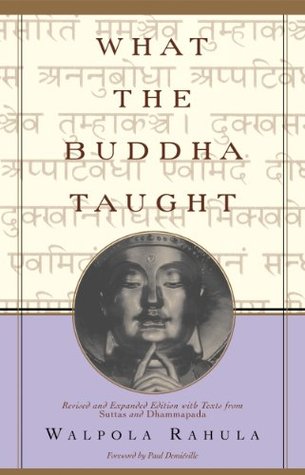More on this book
Community
Kindle Notes & Highlights
Read between
May 16 - June 1, 2021
Man is his own master, and there is no higher being or power that sits in judgment over his destiny.
The freedom of thought allowed by the Buddha is unheard of elsewhere in the history of religions. This freedom is necessary because, according to the Buddha, man’s emancipation depends on his own realization of Truth, and not on the benevolent grace of a god or any external power as a reward for his obedient good behaviour.
O Kālāmas, when you know for yourselves that certain things are unwholesome (akusala), and wrong, and bad, then give them up . . . And when you know for yourselves that certain things are wholesome (kusala) and good, then accept them and follow them.’
To force oneself to believe and to accept a thing without understanding is political, and not spiritual or intellectual.
If the medicine is good, the disease will be cured. It is not necessary to know who prepared it, or where it came from.
Whatever is of the nature of arising, all that is of the nature of cessation.’
The theory of karma is the theory of cause and effect, of action and reaction; it is a natural law, which has nothing to do with the idea of justice or reward and punishment.
Words are symbols representing things and ideas known to us; and these symbols do not and cannot convey the true nature of even ordinary things.


